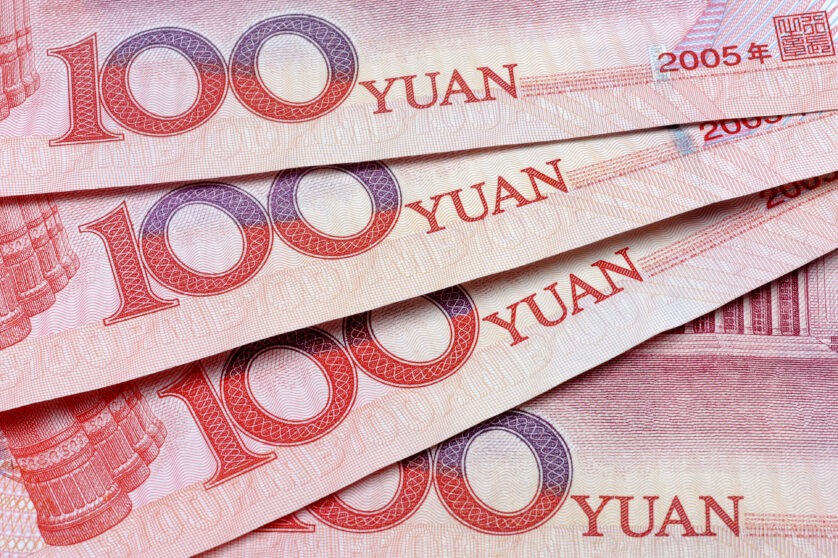I have come to expect that good research into how China’s government organisations actually function is likely to tell us that:
- Compared to the rest of the world, many things are organised differently in China.
- Chinese arrangements often work quite well, such that the non-Chinese world could usefully examine them – not so much for direct lessons as for the stimulus that comes from seeing differently.
- But the official Chinese narratives tend to conceal the ways in which these organisations work, and obscure the reasons for their effectiveness.
- We can rarely learn much from China by listening to the official line. Good research, well communicated, is key.
Wei Cui’s book The Administrative Foundations of the Chinese Fiscal State (Cambridge University Press, 2022) meets those expectations – brilliantly.
Thank you, Martin Hearson, for drawing my attention to it!
Wei Cui’s book combines extensive empirical research and intellectual breadth
How can any individual have both the opportunity and licence to do extensive empirical research on Chinese tax data and policy and the intellectual breadth to frame the conclusions in terms of grand contrasts between China and ‘the West’ (especially the US), and, to some extent, ‘developing countries’?
Following education at Harvard, Tufts, Yale and New York University, Wei Cui first practiced law in New York and then moved to Beijing for seven years. There he taught and practiced law and advised Chinese government organisations on tax. He now teaches at the University of British Columbia. He thus has extensive experience of two very different tax systems. While in China, he seems to have eagerly exploited whatever research opportunities came his way.
Wei Cui does not claim to present us with a finished picture of how a knowledge of Chinese tax administration can enhance our understanding of other systems. He rather suggests that “…. the discoveries from studying Chinese tax administration can substantially enrich the range of social scientific hypotheses that can be fruitfully tested in studying tax and development generally” (p7). This is not the place to go into detail into possible hypotheses. But we can catch their flavour by summarising what Wei regards as the main implications of his research for developing countries.
Insights into Chinese tax collection – the diminished role of audits and courts
Officially at least, there is a remarkably strong global consensus about how tax collection should be organised at the national level. It can be encapsulated in two propositions.
- One is that it is the responsibility of taxpayers, both corporate and individual, to file regular tax declarations (or returns) that contain sufficient information, as provided in law, for their tax liabilities to be calculated.
- The second is that the tax collector is generally expected to facilitate that process, mostly trust taxpayers, but in certain circumstances to check those returns through audits and, if discrepancies are found, apply the law to the extent of levying penalties or even bringing civil or criminal charges.
We know that in reality tax collectors everywhere stop short of taking every feasible step to ensure that tax declarations are fully consistent with the absolute letter of the law. The transactions costs of doing that can be very high. But full legal compliance is the normative standard, and the possibility of audit of tax declarations (of various degrees of intrusiveness) is the main instrument wielded to push taxpayers toward full compliance.
One of Wei Cui’s main empirical findings is that, although Chinese tax collectors formally adhere to this global consensus and talk as if they use audits in this way, in practice they rarely do so. The conventional audit is not a significant component of their armoury. And taking taxpayers to court is an even smaller component. As a lawyer, in large part writing for lawyers, Wei Cui argues that Chinese tax administration is not regulated by law. It is instead regulated by what he terms a form of state-led large scale social coordination. We can make sense of that phrase by examining another of his major, surprising empirical findings.
The central role of the local Revenue Manager in Chinese tax administration
He discovered that the revenue manager is central to Chinese tax administration, and that a high proportion of all tax collectors work in this role. The primary tasks of a revenue manager are (a) to keep a close eye on localities and ensure that virtually all businesses, including those new and nascent, are registered for tax and then (b) to ensure that all registered business properly complete their routine tax returns and file them on time. In China as in most lower income countries, bonuses for achieving performance targets are an important component of tax collectors’ remuneration.
But while in other countries the sole or dominant performance targets are revenue collection levels, in China actual revenue collection has little weight. Process targets are more important. Are all new potential tax-paying firms registered? What proportion of returns are submitted on time? What proportion of tax bills are paid on time? How long does it take to deal with disputes or to clear tax arrears? These are the kind of criteria that influence how much bonus the tax collector actually receives.
Tax administration specialists will note that the importance given to the revenue manager in China is at variance with the dominant global model of good tax administration summarised above. One aspect of that model is that direct personal contacts between taxpayers and tax collectors, that are understood to encourage corruption, should be eliminated. But they are actually an intrinsic component of the Chinese system. And that system seems to work tolerably well, despite this personalism, its weak basis in law, the very limited use of audit to detect attempts at evasion, and the failure to tie staff bonuses closely to achieving revenue collection targets. Why?
State-led large scale social coordination – tax collectors account for 10% of all public sector employees in China
We Cui’s explanation is organised around his notion of ‘state-led large scale social coordination’: a combination of social, political and organisational arrangements that mean that virtually all businesses pay some tax, large scale evasion is probably rare, and sufficient revenue is raised – all without expending enormous organisational resources enquiring into the details of individual tax returns. The more important practical components of the system seem to be:
- Revenue managers, whose offices are very decentralised and locality-based, can ensure that nearly all businesses are identified and registered for tax.
- Businesses cannot get away with forgetting to deal with their tax obligations. Revenue managers – who might best be imagined as relationship managers – ensure that all the boxes in the tax return forms are filled in, that the returns are filed in good time, and that bills are quickly paid. “…. tax collection in China has a strong door-to-door flavor” (p.10)
- Revenue managers can achieve all this because, compared to almost any other country, there are a lot of them. Tax collection staff account for more than 10% of all public sector employees.
- Since the early 2000s, a relatively elaborate system of taxpayer self-inspection campaigns has been developed. In essence, the tax authorities respond to their own estimates of the likely sizes and sources of ‘tax gaps’ within their jurisdictions by declaring short term self-inspection campaigns, each one covering a particular type of economic activities (e.g. gas stations, builders) or a particular issue (e.g. collection of withholding taxes on royalty payments).Taxpayers in the affected category are required to re-examine their recent tax returns to ensure that they have made no mistakes that reduce their revenue obligations. Mistakes are indeed discovered and declared, and more revenue is collected. To a greater extent than in normal circumstances, self-inspection campaigns are backed by the threat of detailed scrutiny of individual tax returns and penalties should the response be unsatisfactory.
Wei Cui does not claim that the Chinese tax administration system is particularly efficient. Indeed, it has some obvious inefficiencies, including the large numbers of tax staff, the tendency to generate large proportions of formally complete tax returns that indicate zero tax liabilities, and a degree of competition for the same revenue between revenue managers and tax inspectors. He also notes that the Chinese government loads much of the total tax burden on business, notably by collecting very little personal income tax from the wealthy but politically influential urban professional class.
While there are some long-established elements to this system, it is not just an overhang from the past. In fact, starting in 1993 the Government of China tried to establish a global-standard tax system of the kind summarised above, in which central roles were assigned to taxpayer self-assessment, effective auditing, and the creation of a new cadre of professional tax advisers to help taxpayers deal with their paperwork. The reform did not work, and was quietly dropped. We have instead the evolving system that Wei Cui describes.
What can low-income countries learn from China?
Many of the world’s tax collectors will feel that they have little or nothing to learn from looking more closely at China. However, I think it is potentially very relevant to those tax administrations in lower income countries whose clientele comprises mainly a small number of very large firms that remit most of the revenue collected and a very large number of small firms that engage most staff time but generate little revenue. That, broadly, is the situation in much of China.
Wei Cui explores, with more insight and in more detail than I can replicate here, the enormous challenges posed in trying to manage, motivate and keep honest large numbers of low-skilled tax collectors with poor promotion prospects who spend much of their time knocking on the doors of small taxpayers. That is a major problem for tax administrations in low income countries, and one that is in large part swept under the carpet. The close look at actual Chinese experience that is found in this book might be a good way of bringing it into the open.
Watch Wei Cui’s own presentation of his book and its findings
Read more from ICTD on China
- The Rise of China and Contestation in Global Tax Governance – Martin Hearson and Rasmus Christensen
- China’s Challenge to International Tax Rules and the Implications for Global Economic Governance – Martin Hearson and Wilson Prichard



